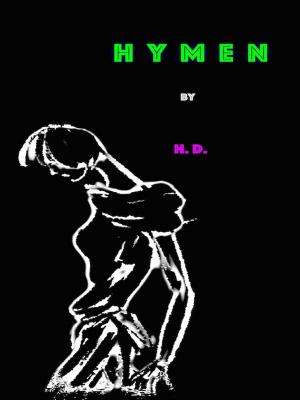| Author: | Herman Melville | ISBN: | 1230000388153 |
| Publisher: | Editions Artisan Devereaux LLC | Publication: | April 25, 2015 |
| Imprint: | Language: | English |
| Author: | Herman Melville |
| ISBN: | 1230000388153 |
| Publisher: | Editions Artisan Devereaux LLC |
| Publication: | April 25, 2015 |
| Imprint: | |
| Language: | English |
"Bartleby, the Scrivener" (1853) is among Herman Melville’s most important stories, and has been considered a precursor to Existentialist and Absurdist literature.
Has there ever been a less desirable job title than scrivener?
They were employed by lawyers to transcribe legal documents; and if that isn't inhuman enough, the office in which Bartleby works has windows that face the brick walls of surrounding skyscrapers.
Bartleby himself is pure enigma.
Plot-wise, it's simple: Bartleby is a clerk, and the book's narrator is his boss.
Bartleby bewilders his employer, first by refusing to assist in proof reading documents, saying, "I would prefer not to."
But in short order he is preferring not to do most anything, including leave the building after he is fired.
Bartleby is finally removed by the police and starves to death in jail, preferring not to eat.
In Bartleby, Melville may have written one of the first meaningful pieces of literature to give voice to the dehumanizing aspects of the modern industrial workplace.
HERMAN MELVILLE (1819–1891) was an American novelist, short story writer, essayist, poet, sailor, and customs inspector. The author of numerous classic novels, essays, and short stories, he is perhaps best known for Moby Dick, Typee, The Confidence Man, Redburn, Clarel, Bartleby, the Scrivener, and Billy Budd. He is considered a literary colossus, and a central figure in the development of the modern novel.
"Bartleby, the Scrivener" (1853) is among Herman Melville’s most important stories, and has been considered a precursor to Existentialist and Absurdist literature.
Has there ever been a less desirable job title than scrivener?
They were employed by lawyers to transcribe legal documents; and if that isn't inhuman enough, the office in which Bartleby works has windows that face the brick walls of surrounding skyscrapers.
Bartleby himself is pure enigma.
Plot-wise, it's simple: Bartleby is a clerk, and the book's narrator is his boss.
Bartleby bewilders his employer, first by refusing to assist in proof reading documents, saying, "I would prefer not to."
But in short order he is preferring not to do most anything, including leave the building after he is fired.
Bartleby is finally removed by the police and starves to death in jail, preferring not to eat.
In Bartleby, Melville may have written one of the first meaningful pieces of literature to give voice to the dehumanizing aspects of the modern industrial workplace.
HERMAN MELVILLE (1819–1891) was an American novelist, short story writer, essayist, poet, sailor, and customs inspector. The author of numerous classic novels, essays, and short stories, he is perhaps best known for Moby Dick, Typee, The Confidence Man, Redburn, Clarel, Bartleby, the Scrivener, and Billy Budd. He is considered a literary colossus, and a central figure in the development of the modern novel.















